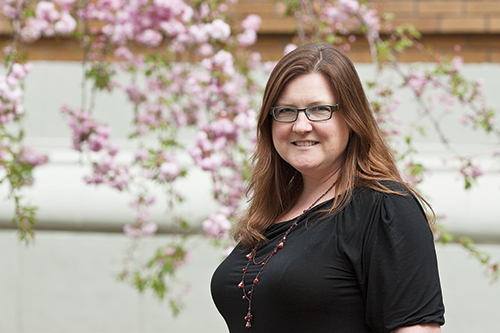Reintegrating veterans into civilian life has been both challenging and puzzling for quite some time, but now researchers at Portland State have an opportunity to look at ways to make that transition easier.
Study to help soldiers find stability after service

Reintegrating veterans into civilian life has been both challenging and puzzling for quite some time, but now researchers at Portland State have an opportunity to look at ways to make that transition easier.
After two years of research and grant writing, PSU psychology professor Dr. Leslie Hammer recently won a $5 million grant to study veterans in the civilian workforce. She has a team from the Department of Psychology dedicated to helping service members transition back into a life outside of the military.
“This is really a unique study,” said Krista Brockwood, a project manager for the program. “There are definitely existing resources to help them transition, but no one has really focused on the workplace yet.” She is a veteran herself, having served in the U.S. Army.
Brockwood explained that the study will focus on service members in the Army Reserve and National Guard, since Oregon does not have a full-scale military base. They’ll be working with civilian supervisors on behaviors that are necessary to support service members, who could be facing significant stressors from their military commitments.
“Their lives can be completely disrupted,” Brockwood said. “They’re pulled away from their families and lives for a year or so and put into a very stressful environment.”
No one knows this better than researcher and recent PSU graduate Gil Brady, who is currently serving in the Oregon National Guard. He has completed one deployment so far, and his unit could be deployed again before the end of his contract. He also works at the Portland VA Medical Center.
“In many ways I’m sort of the perfect subject for this study,” Brady said. “I think it’s important that people understand that this is a genuine social issue. Veteran reservists have exceedingly high unemployment.”
Brady explained that trying to plan for the future when you have a looming deployment creates a high level of anxiety and stress. Even a day before his service is technically finished he might be called to fulfill a yearlong deployment. It’s called “stop loss,” which is regarded as a back-door draft.
He also said that though there are federal laws and acts promoting the hiring of veterans, there’s almost no research on how to keep them employed once they’re hired. His collection of data reveals that service members have had difficulty maintaining employment.
“Any intervention that can help address retention for veterans in the workplace has been shown to have positive psychiatric benefits and [relieve] symptoms stemming from unstable employment,” Brady said.
Sleep deficiency is a major concern for Brady, who struggled with sleeping problems after deployment. He explained that during basic training and deployments service members learn to operate on minimal sleep. On the civilian side, however, it’s maladaptive and can negatively impact workplace performance and family dynamics.
“I’m interested to see how we can predict [veterans’] ability to reintegrate based off of the study of sleep patterns,” he said.
The study will consist of a randomized clinical trial to help eliminate biases, and researchers will be following 500 pairs of participants, each pair consisting of a service member and a supervisor. They’ll also be conducting a side study involving military families and daily diaries. The objective is to get a better understanding of what happens within the family and how it affects the veteran.
Part of the workplace training will involve providing supervisors resources for veterans who are having difficulty coping, as well as resources for the supervisors themselves. A major component will be education to eliminate stigmas around service members and veterans.
“A lot of times, employers may be afraid that vets could have an episode at work,” Brockwood said. “There’s also the concern that they can be deployed at any time. We’ll try to focus on promoting the valuable skill sets that the veterans bring with them, such as leadership and experience.
“You shouldn’t be scared of a service member,” she added.
The hope is that the study will help to bridge the gap between the civilian and military worlds for returning service members. Part of achieving that objective is understanding both sides.
“Reservists require more flexibility, since we can be called to duty any time for what could be an extended duration,” Brockwood said. “It’s tough on employers, too, because they have a bottom line to meet as well.”
For both Brady and Brockwood, this study holds personal significance. Their combined experience with military culture and research makes them uniquely qualified for a study of this magnitude.
“Anything we can do to let the vets know that we’re thinking of their well-being, and thank them for their service, means a lot to me,” Brockwood said. “I’m really proud of PSU for being well-represented.”





